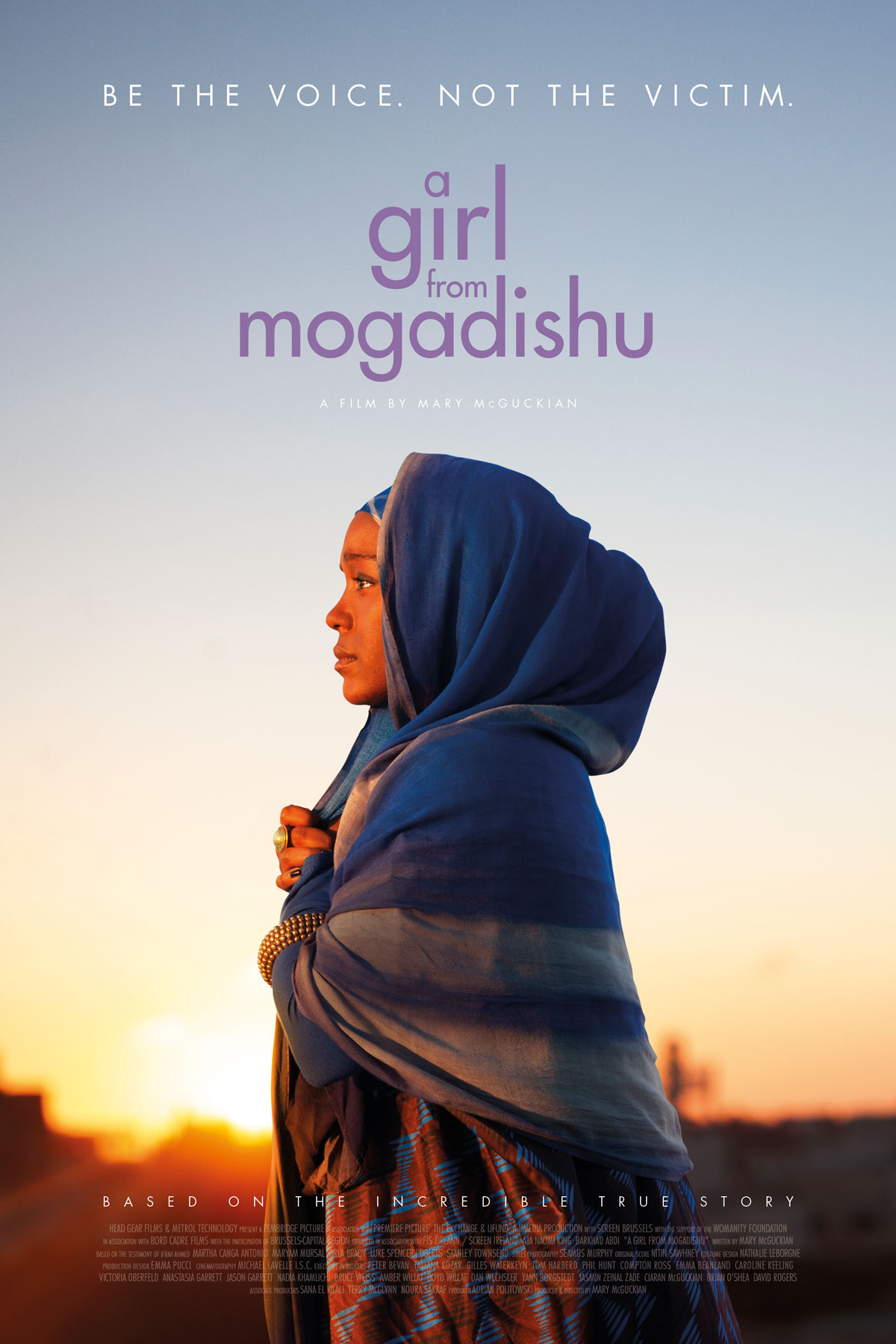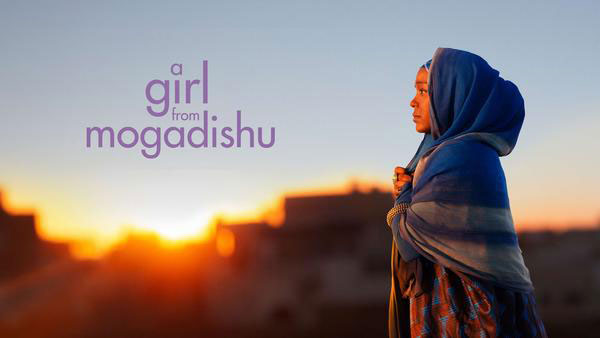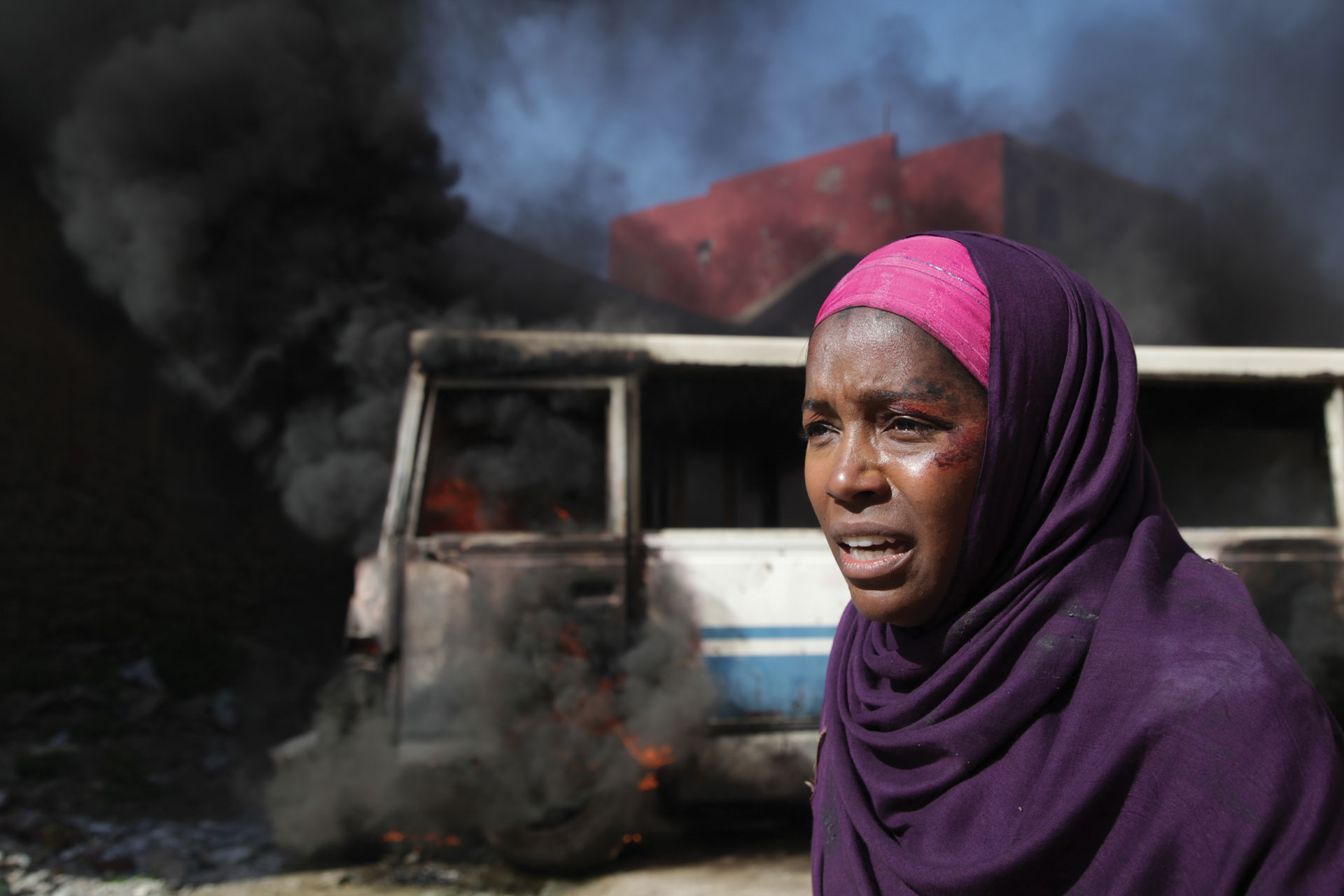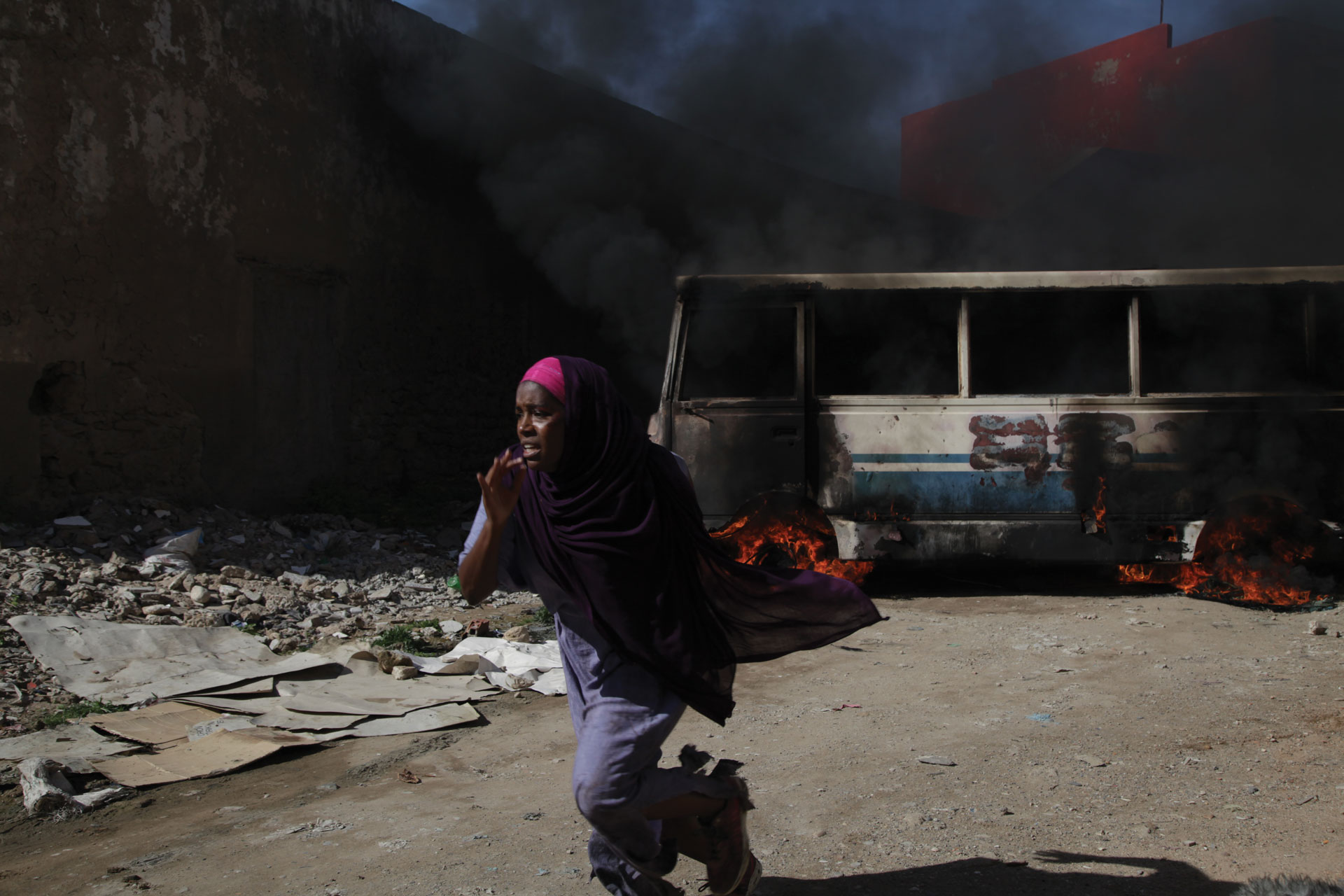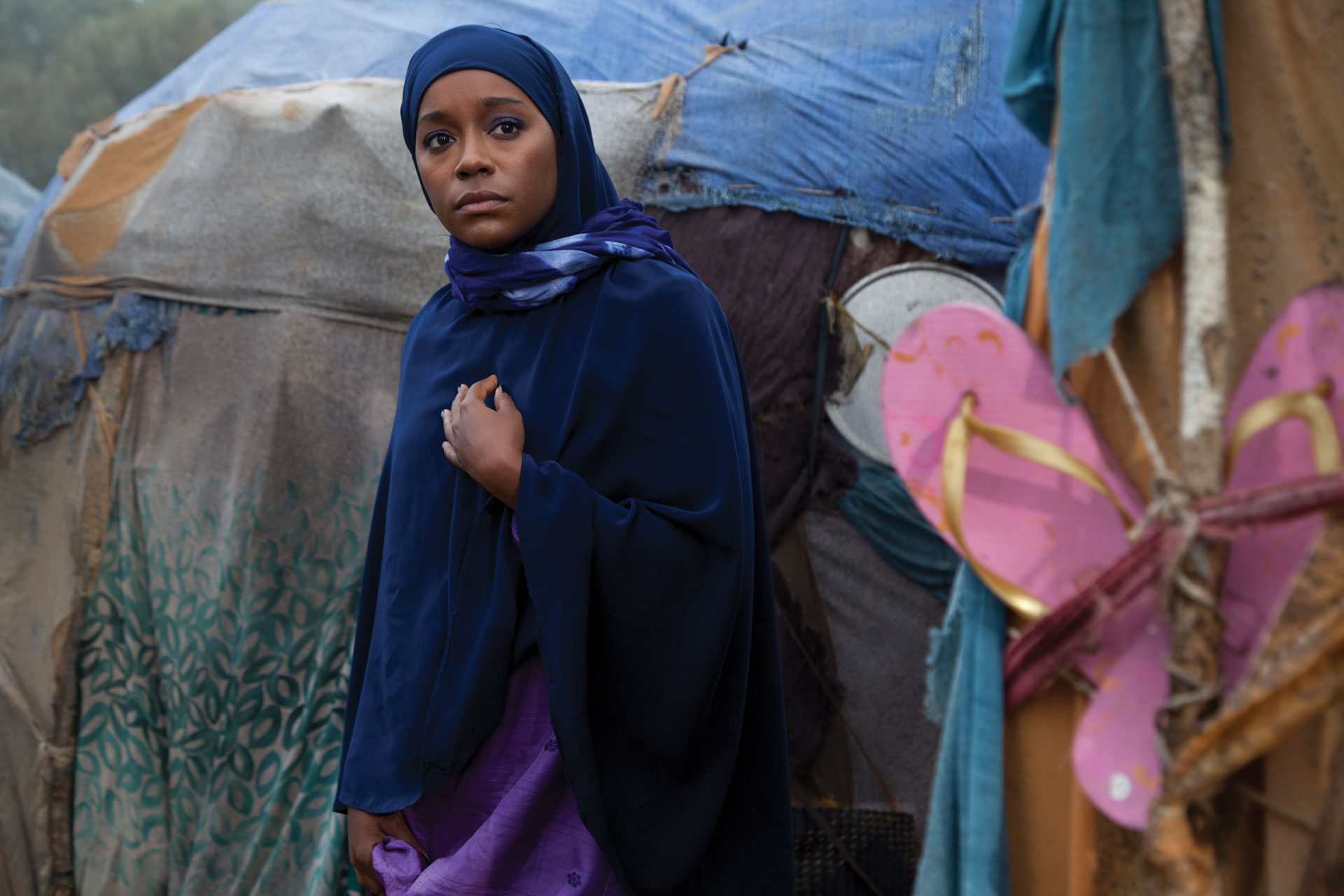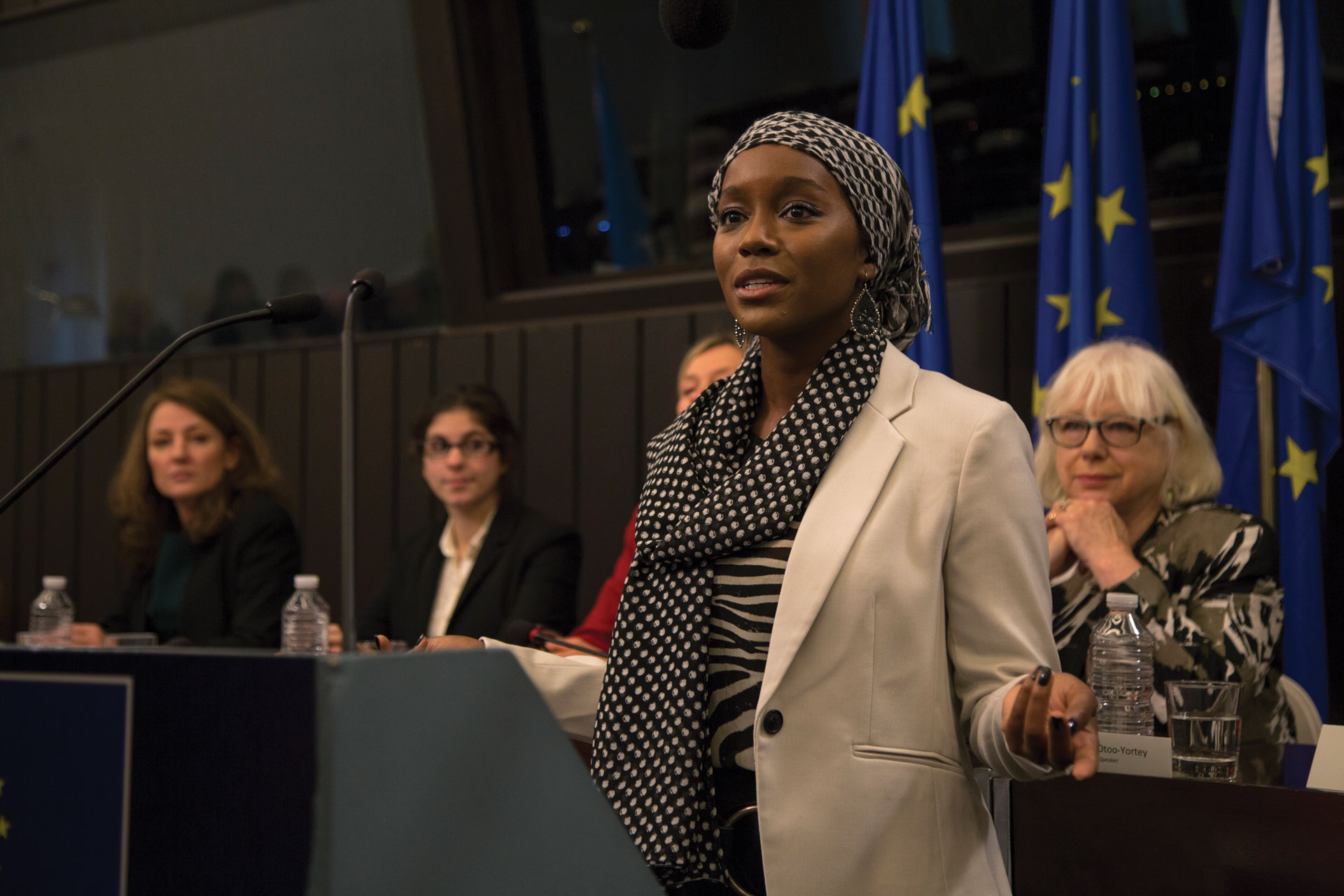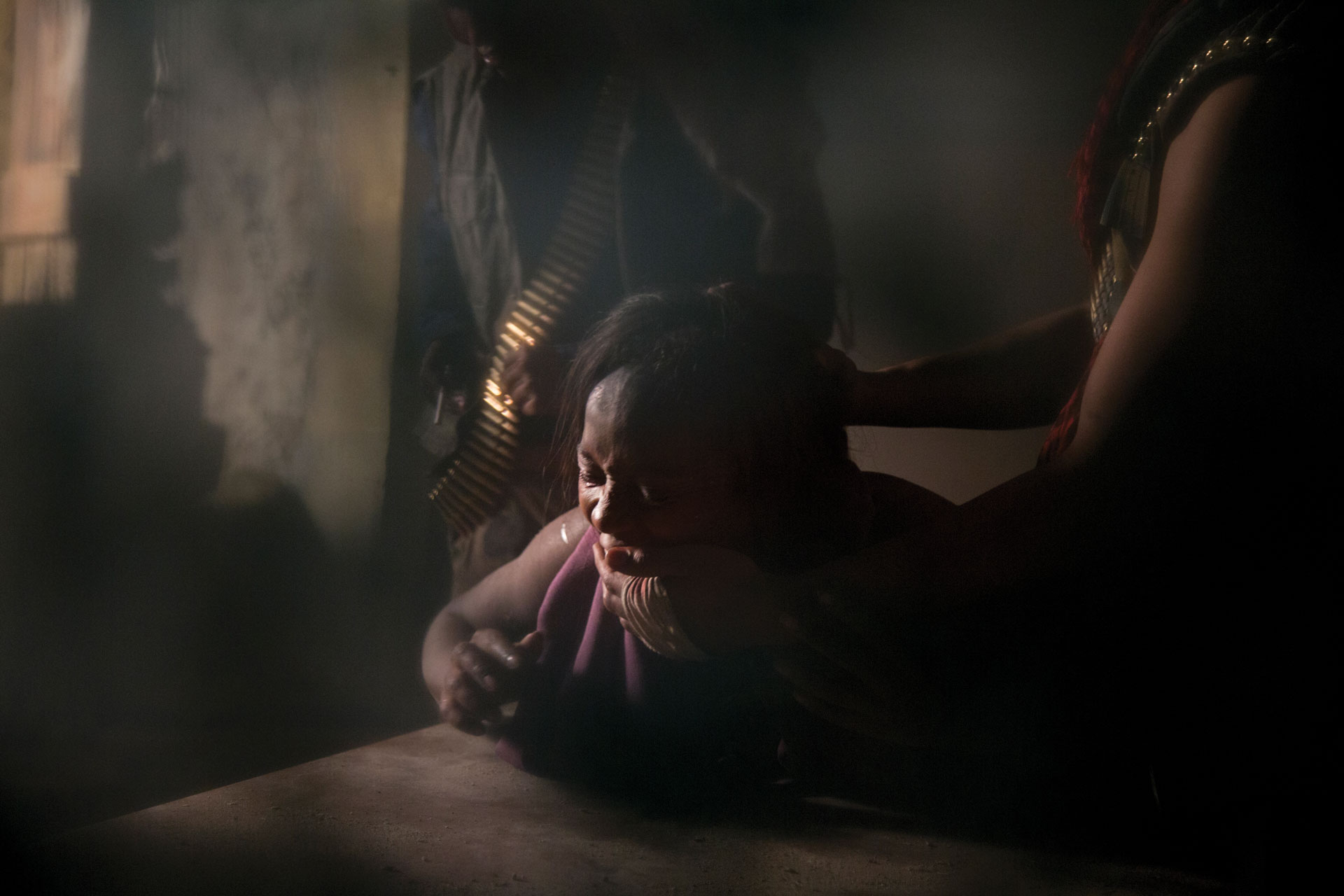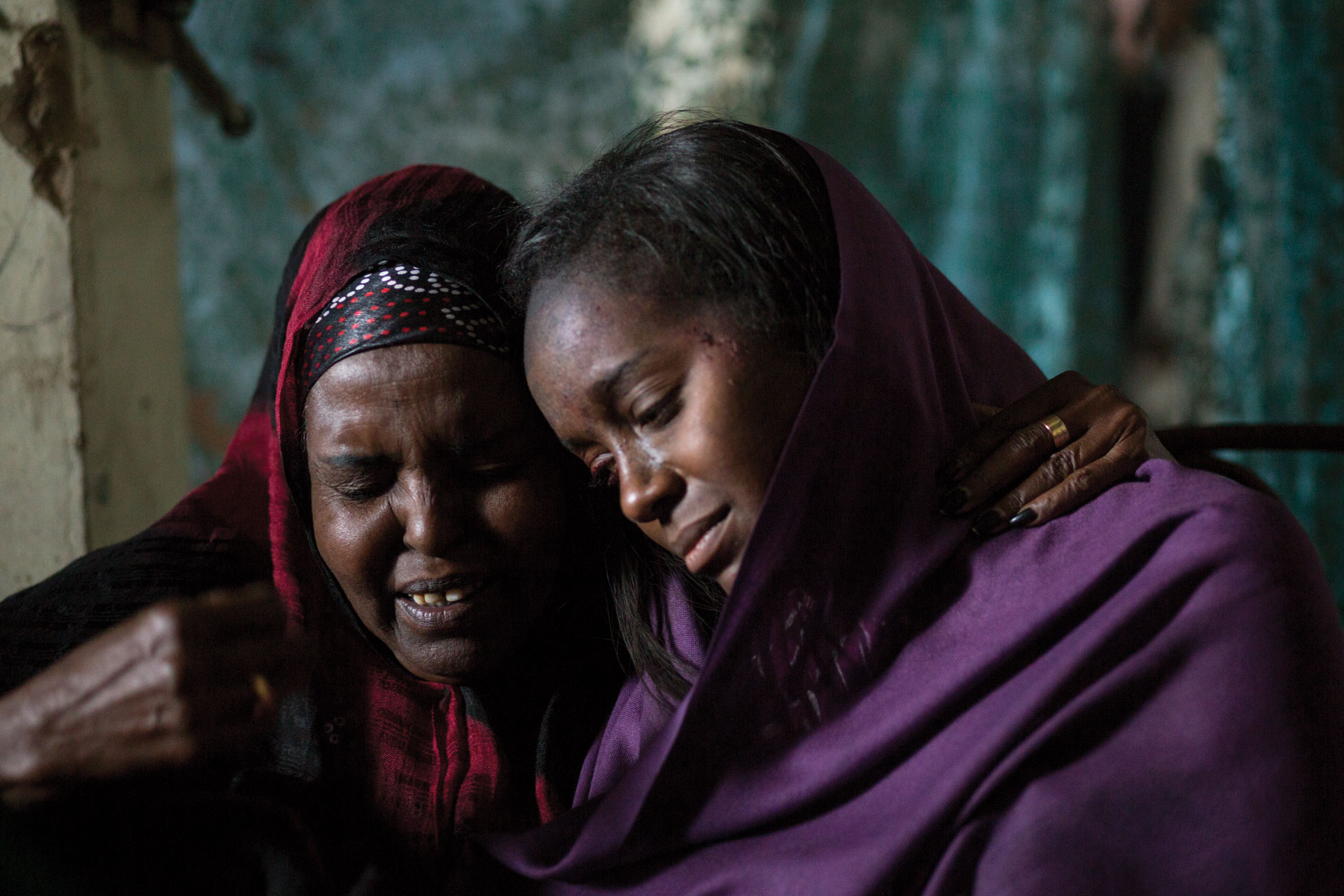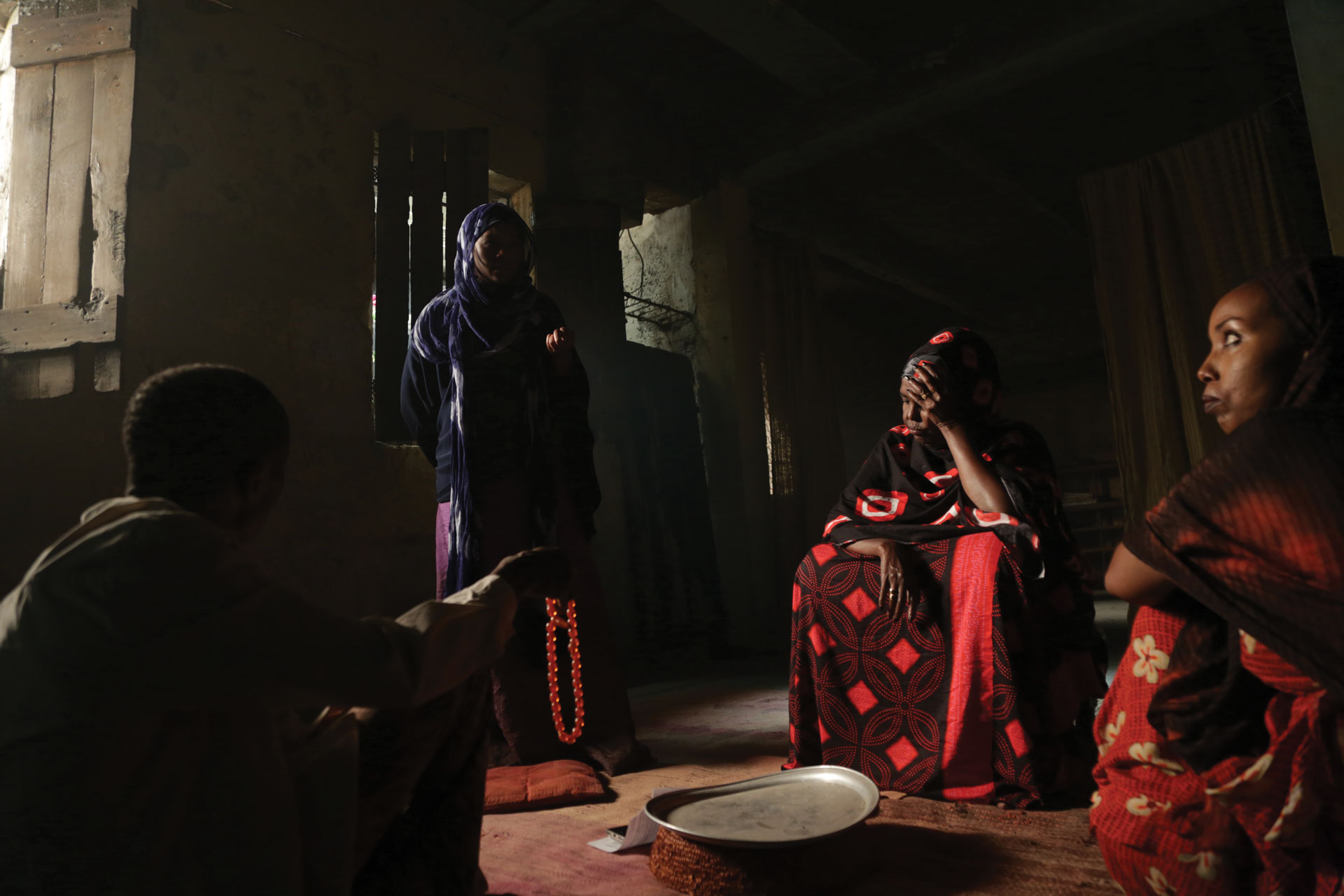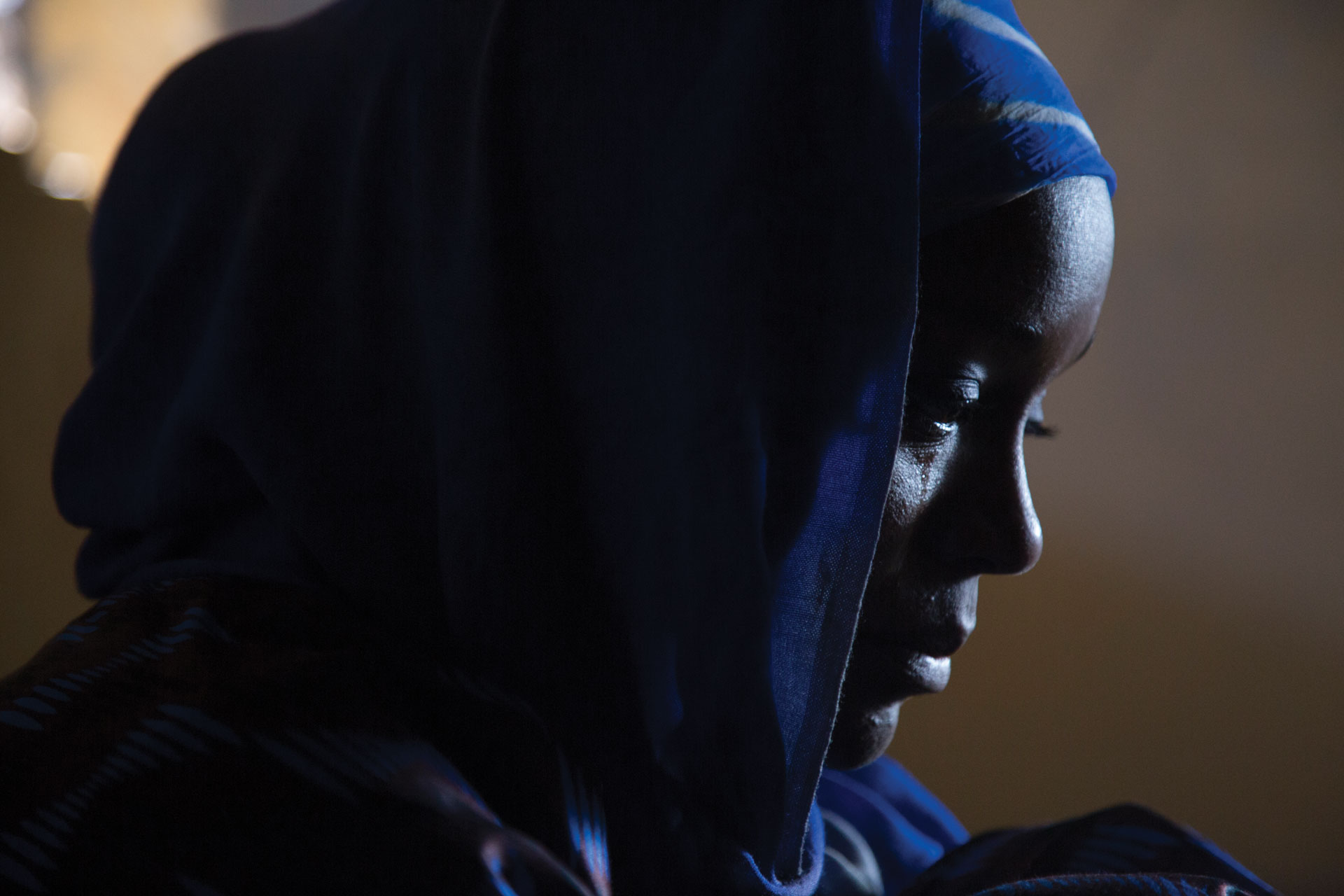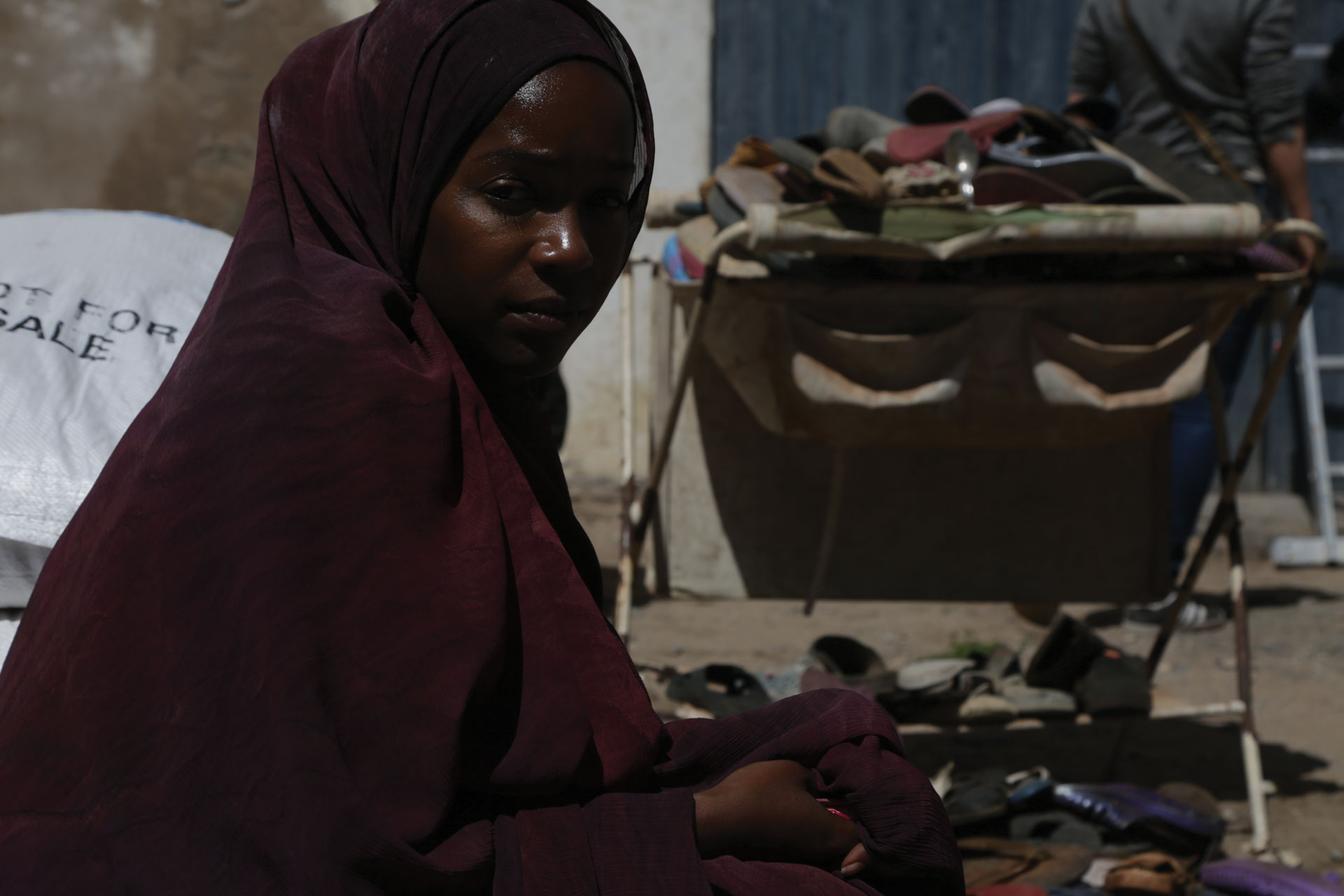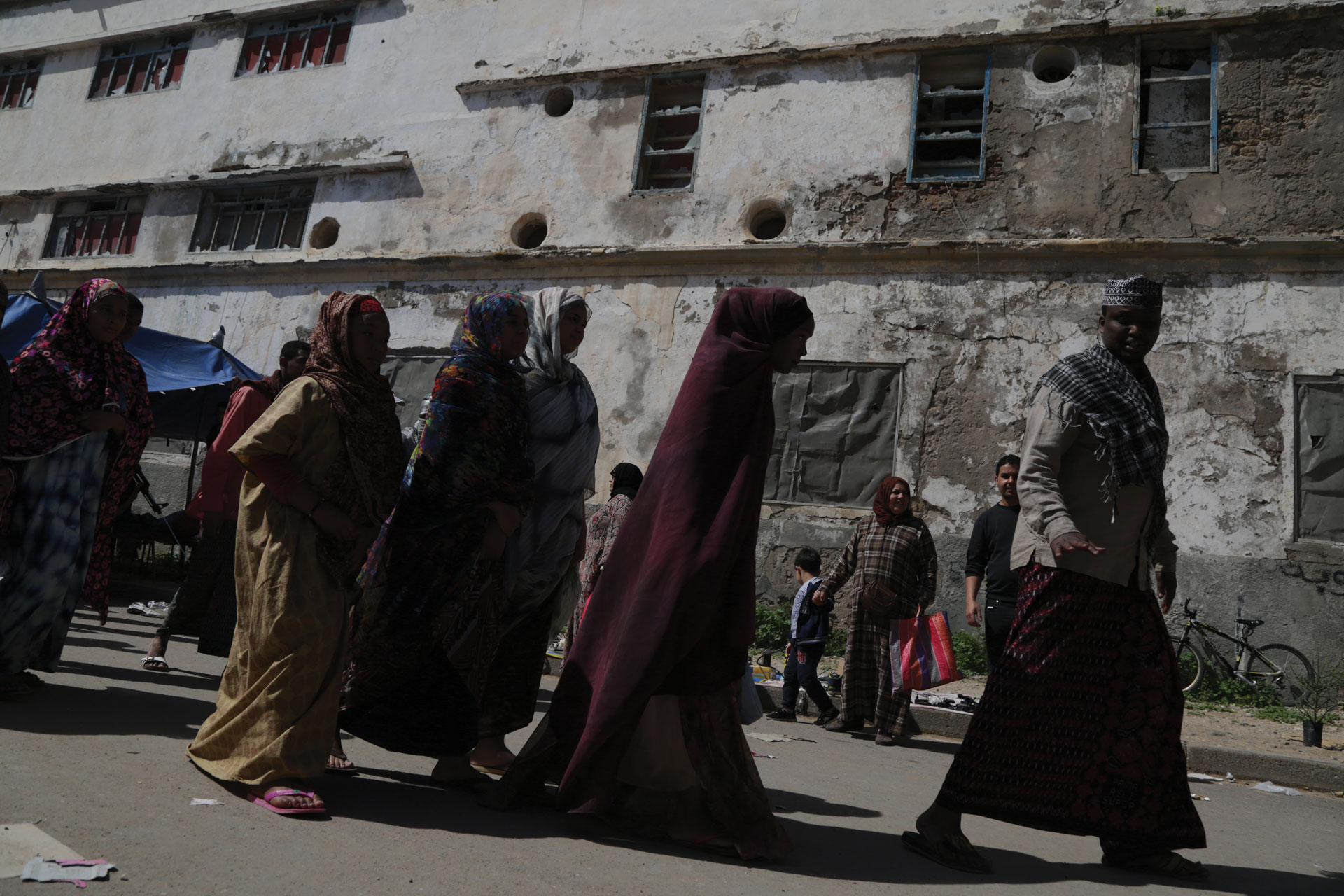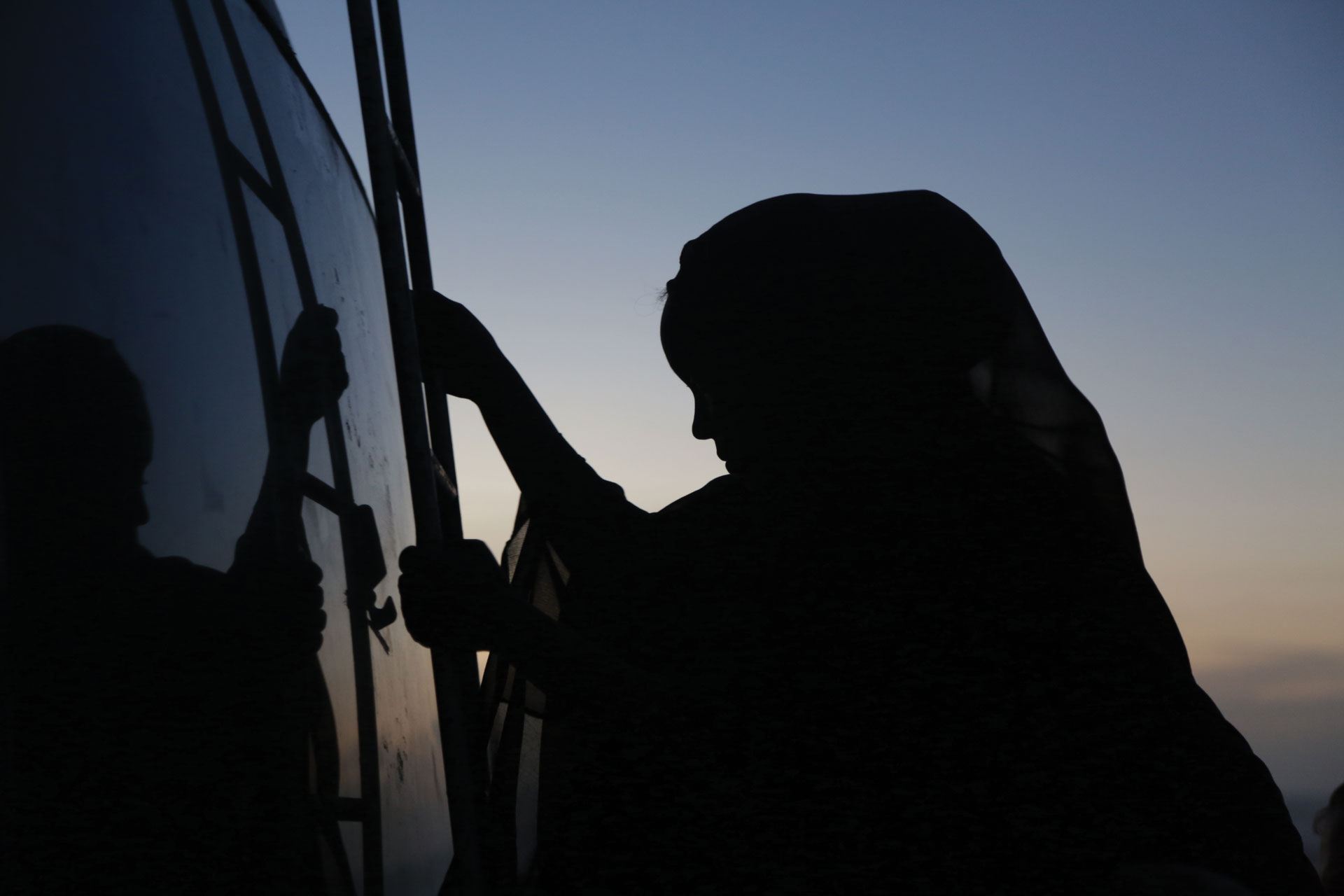
Commercial Distribution is from Mars, Impact Campaigns are from Venus: A Girl From Mogadishu’s Release Goals at Odds
February 4, 2022
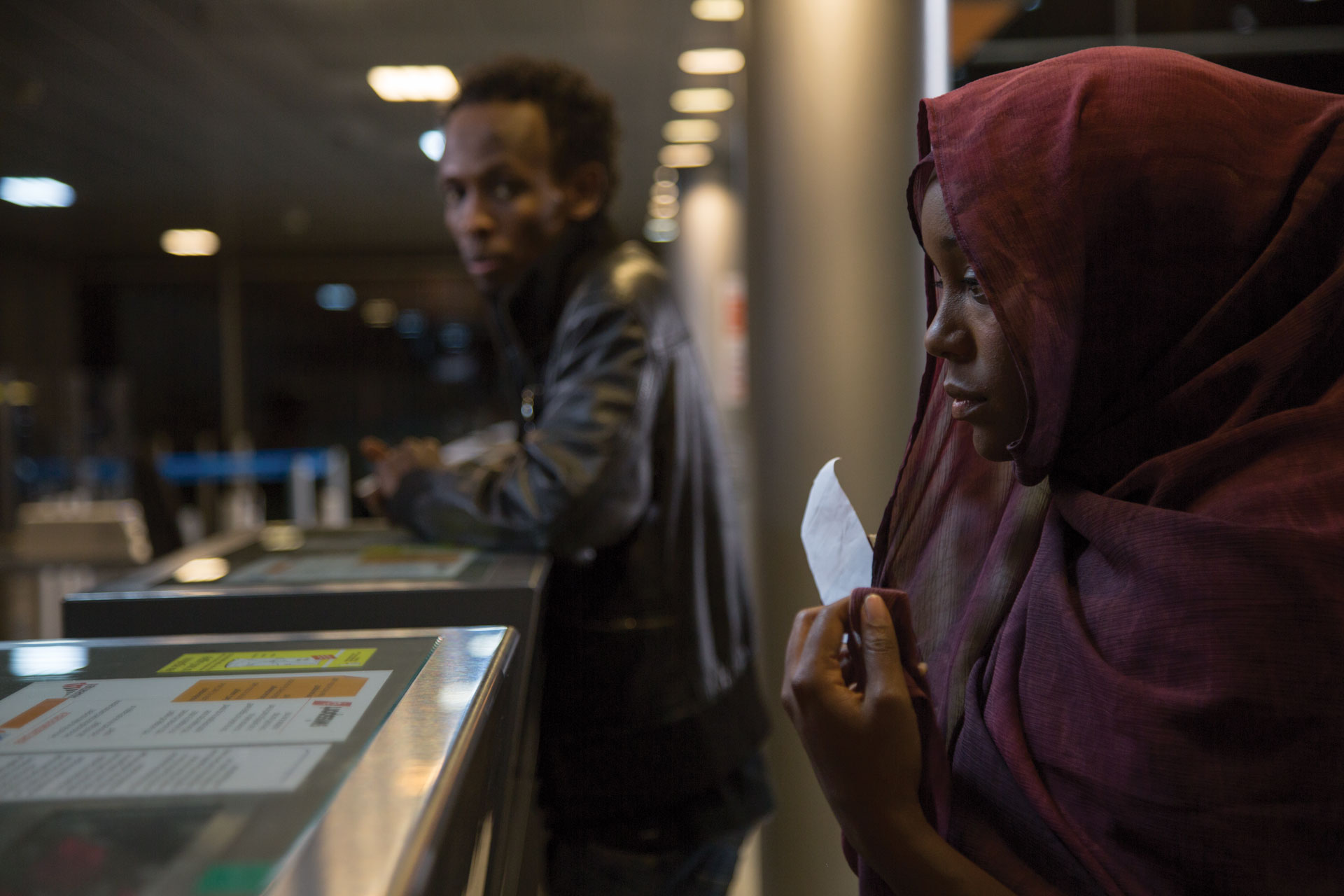
Mary McGuckian is the writer, producer, and director of A Girl From Mogadishu.
When we celebrate female heroes in cinema, we do not simply amplify their voices. We empower audiences to be touched and emboldened by courageous characters such as Ifrah Ahmed, upon whose experiences A Girl From Mogadishu’s story is based. The film encourages more young women and girls to identify with women like her, so it is by definition a film “for, by, and about women.” It leans into the United Nations global call for action to end female genital mutilation (FGM) by 2030 and one of our aims in making this film was to support the Ifrah Foundation agenda committed to that goal.
Aja Naomi King, who is most known for Shonda Rhimes’ TV series How to Get Away with Murder, plays Ifrah. There is also a supporting role for Barkhad Abdi, who starred in Captain Phillips, where he won a BAFTA award and was nominated for a Golden Globe, Screen Actors Guild, and Academy Award. So, the film, we thought, had the potential not just as a call to action, but to perform commercially as well. As such, it was our view that it would have ideally benefitted from distribution via a global platform.
A single all-rights deal did not come to fruition but the twin call to action and commercial ambitions drove the distribution story, even as the pandemic took its toll.
Festival Premieres and Sales Agent Issues
We began thinking about distribution from the outset as the film’s financing structure required certain arrangements to be put in place in advance. As an Irish/Belgian co-production, those territories were carved out by local state funders Screen Ireland and Screen Brussels. North America was also carved out for specific investors, some of whom were donors. While we had hoped to finance the film’s final funding gap using The Film Collaborative’s fiscal sponsorship program, in the end we were obliged to secure a traditional gap loan, which required the appointment of the gap funder’s preferred sales agent.
Pre-selling single films in the international market absent a U.S. distribution deal before an “execution dependent” drama completes and delivers is nigh on impossible these days. The core Irish and Belgian financiers had originally agreed to proceed without a sales agent, and although it would have been innovative and more controllable not to have one, in the end, unfortunately, that was not a risk the commercial funders were prepared to take. The difficulty with sales agents (as they repeatedly remind filmmakers) is that they consider themselves a “B2B” service and confine sales and marketing to that tier. For unique films, particularly films “for, by, and about women” that require innovative marketing campaigns, this can be devastatingly limiting, as it proved to be for A Girl from Mogadishu.
The classic sales agency model is to board as many films as possible with minimum outlay, wherein their deal terms are such that the sales and marketing fees and expenses are recouped before the investors’ shares. In this kind of model, where the sales agent does not actually invest in the cost of production, there is very little incentive to do more than the standard “throw it up against the wall and see what happens” at the usual film markets.
If the film doesn’t perform—and “difficult” films certainly don’t unless they are carefully nurtured and promoted—it’s all too easy to blame the film. It was unfortunate in our case that one of the film’s many executive producers (just one) declared themselves “neither a fan of the script, nor a fan of the film” and made that view known to the other financiers during post-production. This had the devastating effect of giving the sales agent an “out”—so, basically, the film started its life on the back-foot. Unless a film’s financiers and producers stay uniformly of one supportive voice, particularly during post-production, when a film is at its most vulnerable, it can be devastating for the future of the film.
So even before the film was finished, I already knew we would have an uphill struggle and that the film would not be supported for an “easy pass” into an A-List festival calendar. This view was borne out by a general lack of commitment to festival submissions. Deadlines were missed, and even where submissions were made, the film itself was not provided to selectors. As a filmmaker, it’s a tough moment when you realize your main financiers and thus the sales agent is no longer supportive and that the film must prove itself. So, I took a deep breath and prepared for the long, lonely walk around the world that it would take to get the film the traction it needed to start performing at least critically.
Eventually it was agreed that The Film Collaborative could take over handling festival submissions before we lost the entirety of the film festival calendar year. And we were picked up quite quickly with an international premiere at Edinburgh International Film Festival (EIFF) in 2019. From there, with the assistance of the Global Media Campaign (GMC), we began to position the film in the press, through social media and smaller festival bookings.
Over the next twelve months, delaying the film’s Irish and Belgian releases to accommodate the new marketing campaign, the film played at a host of festivals, including Mill Valley and Tina Brown’s innovative 51Fest in New York, working its way through the festival calendar to Berlin, where it won the Cinema for Peace Foundation Women’s Empowerment Award at a ceremony where the other winners included Dunkirk and For Sama, cementing its potential to review positively.
The filmmakers were confined to an impact screening PR campaign and the sales agent requested that we stop liaising with distributors directly. Given this, key premiere dates in the UK at the Edinburgh Film Festival and the U.S. premiere at 51Fest in New York, followed by the European premiere at Dinard (where the film won the audience award), failed to attract distributor awareness despite phenomenally moving audience reactions.
Division of Responsibilities
The U.S. rights were contracted to be co-represented between the lead production company (Pembridge Pictures) and the sales agent (The Exchange), with The Exchange being entitled to seek the approval of the designated financiers for any proposed deal. As the relationship broke down, Pembridge’s proposed U.S. distribution strategy was ignored. And then, with the onset of COVID, an offer from Showtime, which covered the sales agent’s marketing fee, was accepted. At this point, UK/Irish rights were recaptured at the request of Screen Ireland, who supported the film’s release in its home territory. But, of course, none of us could have predicted the longevity of the pandemic at this stage.
It was such a shame that, just as we got the film onto the front-foot, COVID hit. We had walked the film around the world for a year, and finally it was winning awards (many audience awards in particular) and was prepped to premiere on International Women’s Day in Belgium and Ireland. The assets were prepared, the spend had commenced, and then the weekend before Europe locked down, premiere tickets stopped selling! The Belgian premiere went ahead unadvisedly and the Irish premiere was sensibly cancelled.
At least in terms of UK/Irish rights, the Irish distributors (Eclipse Pictures) could now finally deal directly with us (Pembridge) and were supported by Screen Ireland, in what was originally intended to be an Irish followed by a UK release in March 2020. In the end, during a short “re-open” window, a hybrid release was scheduled for December 2020, by which time the UK gap financier had set up a distribution company in the UK and arrangements were made for Bohemia Media, launched by Head Gear Films, to sub-distribute the UK rights simultaneously with the Irish release and benefit from its assets.
Theatrical
Partly due to COVID, U.S. theatrical plans including a strategy—created with Fathom—for a nationwide impact screening, which, sadly, the sales agent was not engaging with in any event and had to be abandoned. Eventually the U.S. rights were short-sold to Showtime (see digital section below) and the theatrical window no longer existed.
The Irish/UK release, originally set for March 2020, was re-scheduled to December due to COVID. Amazingly, in Ireland, the film was booked in 48 physical cinemas across the country (a very high number for a “for, by, and about women” film in Ireland). However, attendance was diminished by COVID restrictions. That said, Eclipse Pictures, who handled the release, did an incredible job marketing the movie in its home country, where, despite the endless COVID news cycle, press coverage in all media was extensive and the critical response in both the UK and Ireland was consistently strong with the single exception of the Irish Times reviewer (also not a fan of the film or the director!).
Simultaneously, the film was released in the UK by Bohemia Media in what is now called a “blended” release in the UK (or “hybrid” as I believe it’s called in the U.S.)—the practice that has become widely accepted during COVID of combining physical and virtual screening releases (not a digital release but multiple curated online screenings).
The Irish blended release was perhaps the biggest innovation the film found itself participating in during this mid-COVID period, because although the UK and, of course, the studios in the U.S. innovated quite quickly, Irish distributors were very slow to adopt and endorse this hybrid structure. We were among the first films in Ireland to do so.
Impact Screenings
Given the financing structure and formal distribution arrangements understandably required by the film’s commercial funders we were initially quite limited in this regard. After much discussion, the CAMA (Collection Account Management Agreement) was restated in recognition of what was now the proven marketing and PR value of impact screenings, thus allowing us to widen the scope of the film’s direct distribution arrangements as a continuation of the “festival / non-theatrical / special screenings.”
Working with The Film Collaborative, we launched a global impact screenings campaign February 6, 2020, which was International Zero Tolerance Day for FGM. With the onset of COVID, The Film Collaborative adapted extremely quickly to virtual festivals and screening events and the film booked well, which also assisted in building up social media awareness prior to the film’s release. This was a precursor to what then turned into a virtual global screening premiere event prior to release, where we divided the globe into 7 time zones (an approximation of what the map looked like can be found here) and set it up so that the viewing period in each zone would begin at 7pm local time.
While the initial global impact screening campaign was abruptly interrupted by COVID six weeks following its launch, in total approximately thirty screenings were programmed successfully within the first few weeks. The initiative was supported by Ifrah Foundation and the final premiere event was hosted and supported by global stake holder organizations including the UNFPA, Wallace Global Fund, African Women Rights Advocates, The Orchard Project, Arrow, as well as bi-lateral missions around the globe, the End FGM Canada Network, End FGM European Network, and End FGM/C U.S. Network. Joining the heads of these organizations to talent on an accompanying panel was the first time we managed to co-ordinate the film’s commercial talent support with the film’s impact message. While late in the day, it proved a winning combination.
In the end, although the public virtual premiere event was not widely attended, as, sadly, the UK distributor’s PR company misunderstood the brief, the upside has been an extremely strong impact for the future of FGM elimination at global stakeholder level.
One particularly impactful screening was hosted by the Irish Embassy and Irish Aid jointly with the UNFPA in Nairobi during ICDP 25. The over-subscribed audience consisted of stakeholders from all major IGO agencies and bi-lateral donors, as well as Somali survivors amongst the dignitaries. The direct impact in terms of support for Ifrah Foundation and other East Africa-based grass roots organizations working to eliminate FGM in the region has been phenomenal and continues to resonate.
Marketing
It was hugely beneficial to be able to separate out the impact screening campaign but what it created was an unintended two-pronged strategy in terms of how we were positioning the film. A more coordinated marketing effort and synergy-oriented approach supported by belief in the film and its potential impact from the get-go would have benefited the film’s release.
Possibly because they lacked confidence in the film until it proved itself, the sales agents and their distributors tended to shy away from what the film was fundamentally about.
Instead of embracing the “impact” message head-on as part of the marketing story, there was a tendency to “skirt around it.” I was often asked to avoid over-emphasizing the FGM of it all and instead focus on cast, performances, and the underlying “power of testimony” theme. So, to my mind the commercial marketing campaign lacked conviction.
In an attempt to separate “church and state,” we had two different marketing plans: one for the impact screenings, and one for the theatrical/digital release, with two completely different sets of activities going on, which was really a shame. Once the film was out there, though, the press, social media influencers, and audiences alike spoke to the FGM issue as a fundamental response to the film itself.
So few films break through these days—and in my view, they do so when audiences connect with their authenticity. When it came down to how we positioned this film to the distribution marketplace, running shy of the film’s core impact issue was a mistake.
Around the same time, a film that did work—and it was our main comparable in terms of being an issue “for, by, and about women” title as many distributors mentioned that they couldn’t take on A Girl from Mogadishu because they had already committed to it—was For Sama. Its PR campaign did not for one moment pull its punches. It had a slow but effective festival journey, premiering at SXSW where it won the Documentary Feature Competition's Grand Jury and Audience Awards and then its pedigree was established when it went on to screen at Director’s Fortnight. The conviction with which its producers (at Channel 4) and UK distributors and sales agents coordinated their campaign was evidential and effective. They did not hide what the film was about.
Releasing at the height of the Syrian war (of course the Syrian war is ongoing but it felt like the film came out at a key time in terms of news coverage), and, yes, it was a documentary, but Waad al-Kateab was playing herself in it, and it was about her and her daughter’s life—so the audience was identifying with real people going through a specific experience about the horrors of bringing up a child and a family in a hospital in Aleppo in the middle of the bombardment by Assad. We met Waad often as our films attended many of the same festivals over the months that followed, and it is a credit to her generosity as a filmmaker that she supported many A Girl from Mogadishu events and panels while under understandable pressure to promote her own film. Solidarity! All part of her authenticity as a filmmaker and audiences responded to that. The For Sama distributors didn’t shy away from the horror of the war, either, or how heartbreaking the film was—and the simultaneous call for action was coordinated and appeared seamless in all territories as it contributed to the film’s promotion.
That, in hindsight, is what we should have done with this film—to allow the story to have the impact intended rather than sublimating it to more “palatable” pitch at the B2B distributor stage. Once the film was screening to audiences, it was clear people were deeply affected by the film and desperately wanted to hear, talk to, feel, hug Ifrah herself and discuss the gender-based violence (GBV) issues, particularly sexual violence in conflict and her FGM story—because she is the embodiment of the experience that is the story of the movie.
On every panel (and we participated in dozens), the final question was always, “What can we do to support?” Clearly a “call for action” should have been the central focus of a joined-up coordinated marketing campaign. Such a marketing approach for this film could have leveraged the FGM issue in a commercial campaign with an actual call for action, which would have also contributed more meaningfully to the United Nations global call for action. This was sadly considered an uncommercial approach and avoided, I believe, in part because the effort involved fell outside the sales agent’s “B2B” remit.
And because the pre-sales market has completely collapsed, and “straight distribution deal” offers from smaller international distributors (for example, offers we had from France, Italy, Spain, Middle East, etc.) are not commercially interesting to sales agents who prefer upfront advances, they were ignored or rejected. Those offers are no longer on the table, as the independent distribution landscape has been devasted by COVID.
I hope it’s not inevitable (or that films like For Sama are not outliers), that it becomes impossible to release an independent impact film commercially unless it’s produced by a digital studio or streamer. But it is the case that there are lessons to be learned about how important it is to nurture unique impact films in a tailored and careful way, and most importantly, with conviction. One word: grassroots. Too often, sales agents and distributors underestimate audiences and the potential power of coordinating a grass roots call for action approach simultaneously with commercial B2B exploitation via direct distribution deals. It requires more effort for sure, but also potentially results in a great deal more impact, commercially as well.
Digital
As of now, A Girl from Mogadishu is available on Showtime in the U.S.. A low-six-figure advance was paid, but the U.S. investors have not entirely recouped their investment. It is also available on TVOD/SVOD/AVOD in the UK and Ireland, with the education screening campaigns being handled by the local distributors. The sales agent, having turned down individual international distribution deals, may struggle to recoup the film’s commercial investors.
Because of COVID, the much hoped-for Mogadishu premiere for A Girl from Mogadishu has been repeatedly rescheduled, but we hope to do it on the February 6, 2022, which should prove an opportunity to gain traction for the title on digital platforms.
Airline
In terms of airline rights, the sales agent has the right to exploit these in due course.
Crowdfunding for distribution
Initially considered but ultimately rejected due to the likely effort vis-à-vis the likely outcome. On reconsideration, we did outsource the implementation of a Kickstarter campaign for distribution through one of the film’s U.S. executive producers and invested significant resources creating the assets for social media, only to find ourselves in a horrendous situation when the coordinator contracted to run it hijacked the film’s social media platform accounts, locking us out and attempting to extort money from the production! While we managed to have the accounts taken offline and lawyers were required to resolve the situation, it did mean that a lot of the unit production social media traction gained during production was lost and it certainly put us off professional crowd funders.
Another instance of how important it is for filmmakers to keep control of all rights!
Speaking engagements and fees
No fees were charged for speaking engagements, as we consider them an opportunity both to represent and promote the film, as well as amplify the issue of FGM globally. Both Ifrah and I attended as many of these physically and virtually as possible, both separately and together, and have likely contributed to at least fifty panels between us.
It’s worth noting that Ifrah Foundation is a regulated charity and constant review of any “conflict of interest” was required to ensure that association with the film and any direct or indirect gain for the charity was within regulation. The planned Ifrah Foundation Charity premiere of the film and its potential to fundraise was a major COVID loss.
For example, Ifrah Foundation received a grant to support the charity premiere arrangements, which, in the end, was not used for that purpose, as the UK distributor who instructed a UK sub-distributor to promote the event had difficulty understanding that grant aid is highly regulated and use of funds are intentionally restricted. So, it can also be tricky finding a balance between the impact ambitions of a film and the win-win cross promotional potential appropriated in favor of commercial distribution that is hard-wired to recoup financiers. Ethical and contractual imperatives need to be clarified in advance.
Soundtrack
This was released simultaneously with the UK/Ireland blended theatrical release on December 4, 2020 by Atlantic Screen Music. Publishing ceded by the composer Nitin Sawney in support of covering the costs of creating the score with much appreciation.
Takeaways
The extraordinary irony is that despite the film’s commercial partners’ determination to water down the film’s impact messaging around FGM in an effort to buoy up its commercial potential, in the end the film has been more successful as an impact project.
Working with The Film Collaborative and Eclipse Pictures has been a joy. People who responded to what the film is actually about and feel passionate about it are invested in helping it succeed.
In general, in the current marketplace, I would avoid signing up a sales agent if possible until the film is completed and has exhausted all direct to distribution platform options. To cede control of a film’s marketing campaign to an independent sales agent and/or specific pre-sold distributors with different agenda makes a joined-up PR/marketing campaign very difficult to agree to between financiers, sales agents, and distributors.
This project’s journey is a salient reminder to filmmakers that in the end we are responsible not just for what makes it to screen but for also putting audiences in front of that screen and the success of both endeavors takes a lot of time and hard work.
As for whether we fulfilled our goals and dreams? In terms of media awareness for the issue—yes, we did. In terms of reaching a wide audience—we are still working on it! In terms of recouping financiers, the Showtime deal on its own will not recoup the U.S. investors. Once the license has expired, other options will have to be considered.
COVID really hit the project at exactly the wrong time. It was a huge shame that the UK/Irish release did not roll out just a few weeks before lockdown as we could have avoided cancelling the theatrical premieres. As the gap financier Headgear owns the UK distribution company and the film remains under pressure to recoup, the producers were obliged to support their preferred release strategy for that territory. The timing of that release during COVID was extremely unfortunate notwithstanding extensive and consistently positive coverage. The “blended release” innovation was just beginning.
Also worth noting is that as an Irish film, separating the territory of Ireland from the UK at papering stage is important, as it’s a very small part of the “UK” market. Irish films can perform well in Ireland if they are marketed specifically in the territory. UK distributors tend to either ignore Ireland, or sub-license locally anyway.
A bit like Canadian films with local distribution in Canada before a separate U.S. distributor takes on what is usually all of North America including Canada thrown in for good measure.
TFC Takeaway
Mary McGuckian was extremely forthcoming above about some of the issues involving the sales agent for this film as well as lack of coordination between the way the film was presented in the commercial marketing campaign versus the impact screenings. But it seems to TFC that these issues might be viewed as two sides of the same coin, considering that the impact screenings had to be wrangled from the sales agents into a separate rights class to begin with. All in all, it seems that the filmmakers did the best they could under these circumstances, particularly considering the impact of COVID in canceling the robust physical impact campaign they had planned. They really did take a bold and ambitious approach when going virtual with their impact screenings, with the support of many prestigious institutions worldwide, and the symbiosis between the film and the Ifrah Foundation presents a compelling model for future co-productions and impact campaigns. That said, the more complex the financing structure and the organization support, the harder it seems it is to achieve synchronization on all levels.
TL;DR
Having both commercial and impact appeal seems like a winning combination, but in the case of A Girl From Mogadishu, we see that these two categories can be at odds when they have separate marketing strategies—which was the case because the film’s financiers insisted on a sales agent out of understandable concern about recouping their investments and the filmmakers were confined to promoting the film via impact screenings. This led to the teams handling the commercial exploitation to follow PR advice that because audiences are assumed to shy away from difficult topics, the film should stick to a “safer” marketing approach (i.e., the performances of the lead actors). But it turned out that audiences responded in equal measure to the film’s activist angle and Ifrah’s story of empowerment. The filmmakers did not manage to convince the commercially interested parties in a timely manner that an integrated marketing approach —one that did not shy away from the topic of FGM—would have served the film better in the long run. Given the constraints placed on an ambitious project that needed to raise its budget in the way that it did, is a flawlessly coordinated impact campaign too high a bar without the help of a studio or streamer?
